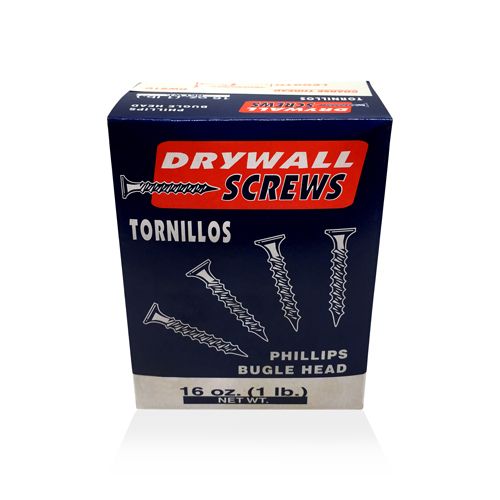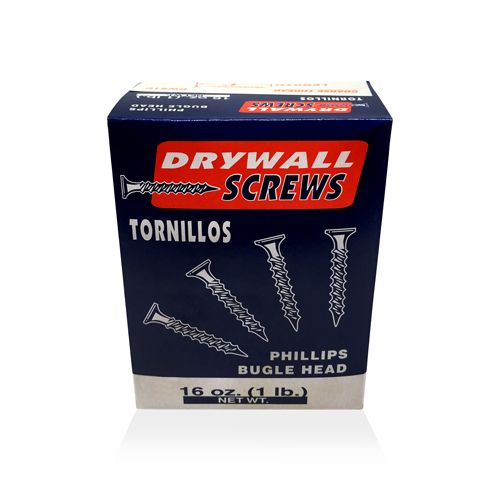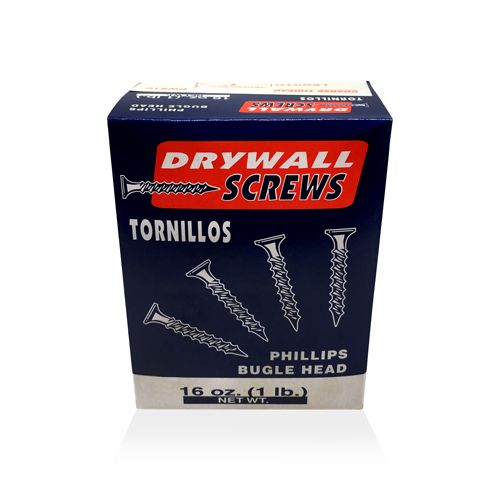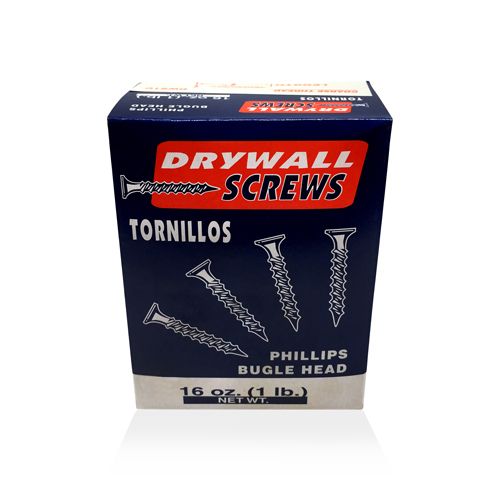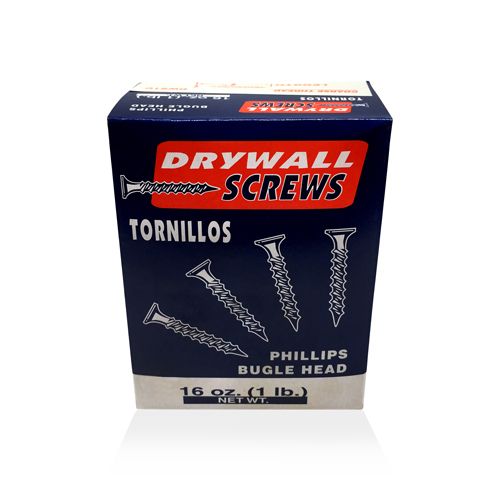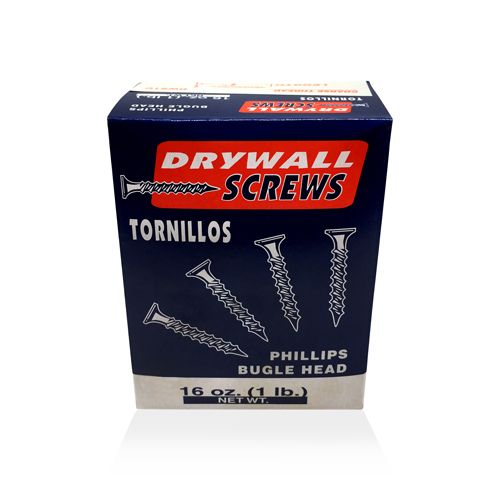Drywall Screws
Drywall screws are full-threaded screws that come in coarse or fine variants, which have become the standard fastener for securing drywall boards to wood or metal studs. These screws come in several heads types and are available in three-point types sharp, self-drilling, and standard. The length, gauge, and thread of the drywall screws depend on the thickness of the drywall and the type of studs.
There are different types of drywall screws based on their length, gauge, thread, and point. The length of the screw depends on the thickness of the drywall and the type of studs. The gauge refers to the diameter of the screw. The thread can be coarse or fine, depending on whether the screw is used for wood or metal studs. The point can be sharp, self-drilling, or standard, depending on how easily the screw can penetrate the surface. Some common types of drywall screws are:
- S-type screws: These have fine threads and sharp points and are used for attaching drywall onto metal studs.
- W-type screws: These have coarse threads and are longer and thinner than S-type screws. They are used for attaching drywall onto wood studs.
- Self-drilling screws: These have fine threads and self-drilling points that eliminate the need for pre-drilling holes. They are used for attaching drywall onto heavy metal studs.
The main difference between fine and coarse drywall screws is their thread type and the type of studs they are used for. Fine drywall screws have fine threads and sharp points that make them easier to penetrate metal studs. Coarse drywall screws have coarse threads and wide spaces between threads that make them better at gripping wood studs. Fine drywall screws are also self-threading, meaning they can create their own threads in the metal, while coarse drywall screws are not. Coarse drywall screws are faster to install than fine drywall screws because they have fewer turns per inch. However, coarse drywall screws can also chew through metal and not gain proper traction. Fine drywall screws can generate more friction and increase the chance of galling, which is when the threads of the screw and the metal stud fuse together due to heat and pressure.

